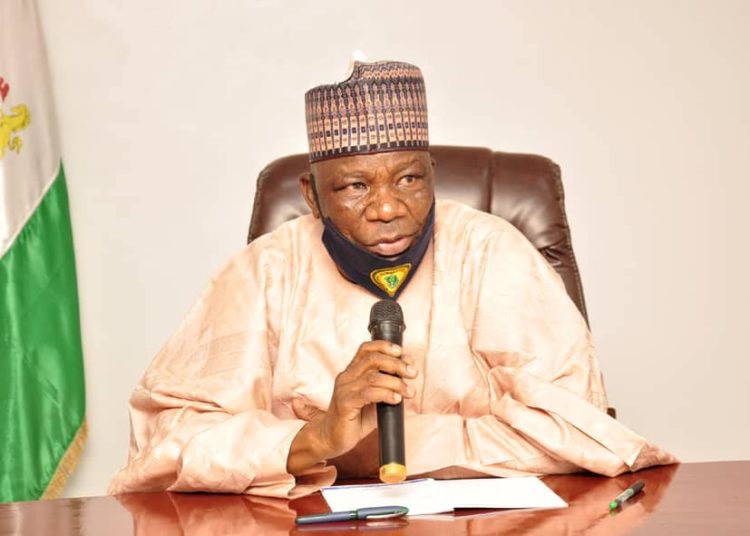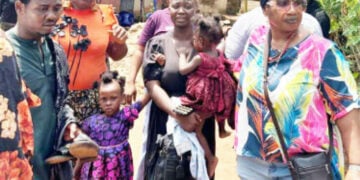| ‘B |
arema’ is the practice of hiring girls to work on farms during planting or harvesting of crops for payment of token sum of money. The practice does not only hinders the girls from going to schools but subjects them to exploitation and rape from those who hire their services on their farms.
Our correspondent reports that some school age girls troop out to streets in Gombe State capital and some local governments headquarters searching for prospective farmers to carry them to farms and assist in planting or harvesting crops in return for payment of wages.
However, there is lamentation that some unscrupulous elements take the advantage of the poor girls who turn them into sex slaves while working on the farms that are usually in the bushes and outskirts of towns. While some miscreants disguise to be farmers and take the unsuspecting girls elsewhere to rape them all in the name of ‘Barema’. Residents of the state revealed that those girls usually troop at Tunfure, a suburb of the state capital, NTA area also at the outskirts of the capital, Lafiyawo, Akko and Lawanti communities waiting for potential customers.
Some sources told LEADERSHIP that the children are paid between N200 to N1, 000 after working from morning to afternoon on farms by farmers. They said it was because their wages are so cheap that farmers resort to patronizing the girls rather than engaging male labourers.
“You can see them in the morning around those communities waiting for their costumers to carry them to farms. They are paid N1, 000 and bellow. Some are even paid N200 daily”. A farmer told our correspondent.
However, women rights activists and community leaders in Gombe State have deplored the exploitation and rape of teenage girls in the state in the name of ‘Barema’. They made the lamentation during a capacity building training organized by ActionAid Nigeria’ to women rights organizations and stakeholders on combating violence against women and girls under its project tagged ‘SLOC VAWG’.
In an interview with LEADERSHIP, some of the participants, Iklima Ahmad from Lawanti village of Akko local government, Sara Adams, a female student from Kwami local government and Maina Bala Shango, a community leader from Garko community decried the practice.
They uncovered that the engagement of girls for labour on farms by farmers has become so rampant in the state pointing out that the practice stops many of the girls from going to school and making unscrupulous elements to take the advantage and rape them on the farms.
According to them, many girls in the state have taken commercial farm labour as source of livelihood as they troop out on streets during raining seasons looking for prospective farmers to patronize them.
They however pointed out that some bad people use the opportunity to carry the girls elsewhere and have sex with them calling on parents to stop their female children from the practice because of the negative repercussions.
While saying that girls are engaged more than boys for the farm labour in the state, the participants revealed that they are being paid token sum of N100 to N500 by the farmers as wages for their labour.
A child rights activist Barrister Martha Daniel decried that those who hire girls for farm labour onload them in a vehicle and cause them to work from morning to evening on farms for meagre stipends.
“As a result of that, girls are being raped, they are being violated, they are not taken to school, their education is suffering setbacks. That is ‘Barema’ in summary”. She stated.
She therefore said the ActionAid training was aimed at encouraging women and girls to speak out against gender based violence and report cases to appropriate authorities for actions.
This is just as she noted that community and traditional leaders were also part of the training in order for them to be enlightened on the matters of violence against women so they could help in tackling the menace in their domains.
She finally called for the passage of the Violence Against Persons Prohibition Law Known as “VAPP” in the state opining that it would go a long way in addressing gender based violence and protecting human rights.
“Girls face a lot of problems but they do not say it out because we have a culture of silence. They worry them in their minds but they cannot voice out. If you are raped or harassed sexually, come out and say it.
“If you do not report it, you are cheating yourself and others. If somebody’s child is raped and you don’t expose it, one-day, your child may be the victim’. Iklima Ahmad, a resident of Lawanti village said while speaking with our correspondent.
Sara Adams said the problem of sending girls for Barema is rampant in Kwami local government and many of girls in the area are not sent to schools. This is just as Barrister Martha Daniel noted that Gombe State in the north is ranking high in terms gender based violence. She opined that implementing the Violence Against Persons Prohibition Law could address the menace.





